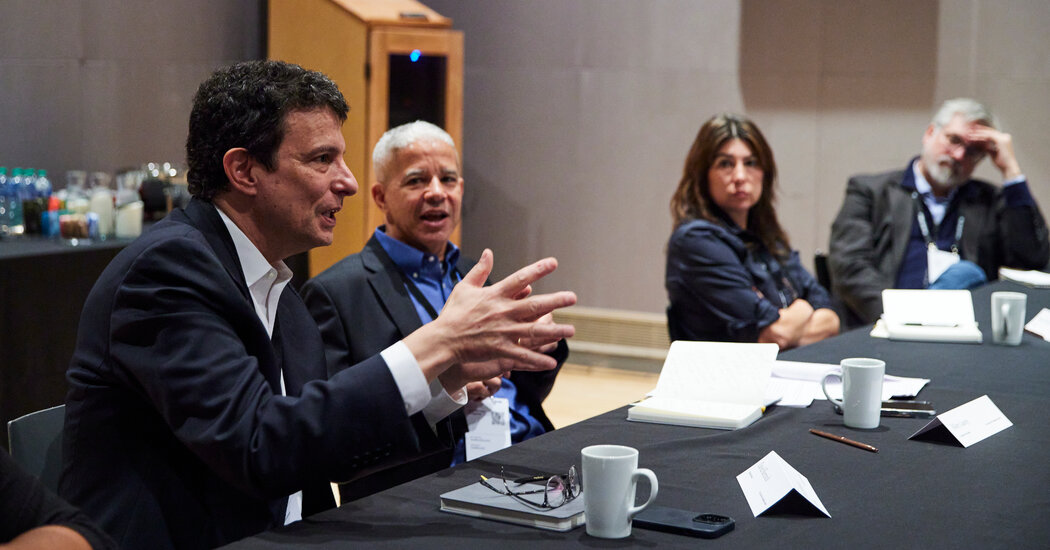Of course, as Ms. Haines said, “There’s no point in making journalism if people can’t afford it.” And so the conversation turned to the question of financing a company that has been hit hard by the hemorrhage of its long-standing dominant revenue stream, advertising and other fiscal forces.
“You can’t do a major investigation if you don’t report to the city council every day,” says Sara Just of “PBS NewsHour.” You will not find out who the corrupt mayor is if you are not there every day.” The disappearance of that kind of local journalism, she said, ‘is what worries me the most. That’s not going to be the for-profit center, but it’s how we find out what’s going on.
Jeffrey Goldberg, whose publication, The Atlantic, put up a paywall shortly before the pandemic, argued for a subscriber-funded model: “Our industry made a mistake 20 years ago by giving quality journalism away for free – we trained readers to expect something that took work, time and energy and money and we gave it away. And we have to stop that.”
Meet The Atlantics Paywall brought “another set of concerns,” Mr Goldberg acknowledged, such as enforcing decisions about what work should be published for free in the public interest and what work should be reserved for paying subscribers. He noted that, for example, if a reader comes from a Ukrainian or Russian IP address, the publication’s Russian and Ukrainian coverage is free.
“What you said about ‘we made a big mistake giving it away for free’: I came to the opposite conclusion,” said Lauren Williams of Capital B, a publication set up this year to provide ‘direct reporting’ to black audiences whose opinions span the political spectrum: “After two years of running a non-profit, I’m totally radicalized.” Ms. Williams argued that there should at least be a news segment with vital information accessible to people.
“There’s plenty of room for different models,” summarizes William Kristol, editor-in-chief of The Bulwark, a publication spawned by disgruntled conservatives during the Trump administration.
However, Mr. Kristol did see failure through philanthropy: “People can give money to whatever they want, but I’d say if you’re from Mars and look at the distribution of what people support you’d be a little surprised.” Ms Williams said many people don’t know there is “a huge local news problem”.

